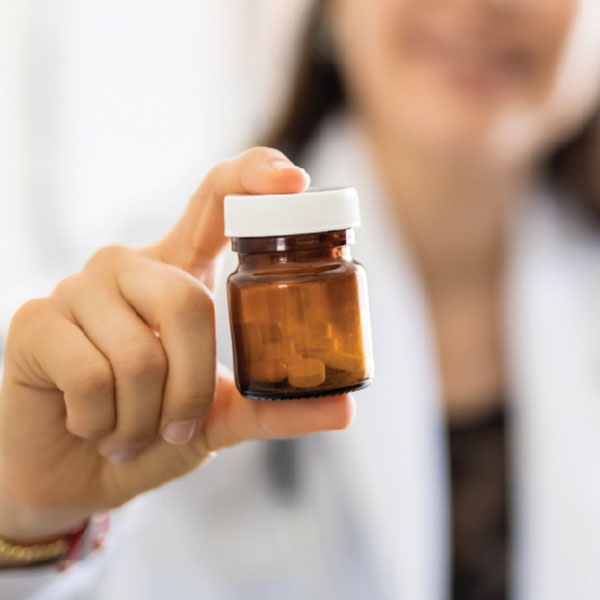LOCATIONS
Discover Local Resources For Recovery and Alcohol or Drug Rehab In Norwalk
Local Resources & Information to Kickstart Your Recovery Journey
If you are in the Norwalk area and need help now, call (888) 290-5601
Help is available for those struggling with addiction in Norwalk
If you (or a loved one) are battling addiction in Norwalk, know that help is available and recovery is possible. Numerous resources and organizations in the city are dedicated to supporting people on their journey to sobriety.
Taking the first step toward recovery can be daunting, but you don’t have to face it alone. With the help of compassionate professionals and a strong support network, you can begin the healing process and build a foundation for a healthier, happier life.
Types of Addiction Treatment in Norwalk
Norwalk offers a range of addiction treatment options and evidence-based treatment services that are available to residents and families struggling with drug and alcohol use.

Medically Supervised Detox
Medically supervised detox is often the first step in addiction treatment. This process involves safely managing withdrawal symptoms under the care of medical professionals. Detox helps stabilize the person physically and mentally before moving on to further treatment. It is typically conducted in a hospital or specialized detox facility where doctors and nurses provide 24/7 monitoring and support.

Medically Assisted Treatment (MAT)
MAT combines medications with behavioral health counseling to treat substance use disorders. MAT is particularly effective for opioid and alcohol addictions. The medications help reduce cravings and withdrawal symptoms, making it easier for individuals to focus on their recovery.

Inpatient Treatment
Inpatient treatment, or residential rehab, involves staying at a treatment facility for an extended period, typically 30 to 90 days. This type of program provides 24/7 care and support in a structured environment. Inpatient treatment includes individual and group therapy, educational sessions, and activities to support recovery and address underlying issues.

Aftercare
Aftercare recovery programs refer to the ongoing support and services provided after completing an inpatient or outpatient treatment program. It includes outpatient therapy, support groups, and relapse prevention programs. Aftercare is essential for helping people transition back into daily life and maintain their sobriety over the long term. It provides continued guidance and support to navigate the challenges of recovery.
How to Choose the Right Drug Rehab In Norwalk For Your Loved One
Selecting the right drug rehab facility for your loved one involves evaluating several important factors to ensure they receive the best possible care:
- Facility accreditation and reputation: Ensure the alcohol or drug rehab center in Norwalk is accredited by recognized organizations. Check reviews and seek recommendations to gauge the facility’s reputation and quality of care.
- The types of treatment offered: Look for a facility that provides a range of treatment options, such as medically supervised detox, inpatient care, MAT, and aftercare services. This ensures the facility can address various aspects of your loved one’s recovery.
- Specializations and expertise: Choose a facility that specializes in treating the specific substance use disorder your loved one is facing. Specialized programs often have staff with targeted expertise and tailored treatment plans.
- Treatment approaches: Review the therapeutic methods used, including individual and group therapy, cognitive-behavioral therapy (CBT), and holistic treatments. Ensure the approaches align with your loved one’s needs and preferences.
- Environment and amenities: Consider the facility’s environment, accommodations, and overall atmosphere. A comfortable and supportive setting can enhance the treatment experience and contribute to a positive recovery process.
- Financial Options: Verify that the facility accepts your loved one’s insurance plan or offers financial assistance options. Understanding the cost and payment arrangements helps manage expenses and ensures the treatment is affordable.
- Potential family Involvement: Check if the facility includes family therapy or support services. Involving family members can improve communication and provide additional support throughout the recovery process.
- Staff qualifications: Ensure the facility employs licensed and experienced professionals, including doctors, therapists, and counselors. Qualified staff are essential for providing effective and compassionate care.
- Aftercare and relapse prevention: Evaluate the aftercare services offered, such as outpatient therapy, support groups, and relapse prevention programs. Comprehensive aftercare helps your loved one transition back into daily life and maintain their recovery.
By carefully evaluating these aspects, you can choose a drug rehab in Norwalk that offers the best support and treatment for your loved one’s recovery journey.

Continuing Recovery Care & Sober Living Programs in Norwalk
Continuing recovery care and sober living programs both play important roles in supporting people as they transition out of treatment. Aftercare encompasses various services designed to help people maintain their sobriety and prevent relapse. This ongoing support is essential for reinforcing the skills learned during primary treatment and addressing any challenges that may arise.
Sober living programs in Norwalk, meanwhile, offer a structured, supportive environment for those who have completed a treatment program but need additional help adjusting to independent living. These programs provide housing in a drug-free environment with a focus on accountability and community. Sober living homes help bridge the gap between treatment and full reintegration, offering a stable foundation for building a lasting recovery.

Local Stats You Need to Know
Between 2015 and 2021, Connecticut experienced 6,752 drug overdose deaths, underscoring the seriousness of substance abuse across the state.[1] In Fairfield County, where Norwalk is located, 38 residents died from drug overdoses during this period, with fentanyl responsible for over 60 percent of these deaths.
Furthermore, a 2015 survey revealed that 8 percent of Fairfield County adults – including 14 percent of those aged 18 to 34 – felt the need to cut back on their alcohol or drug use in the past year, highlighting the continuing need for effective outreach and treatment programs.[2]
Start Your Recovery Today at Paramount Wellness
Paramount Wellness has everything you need to make your recovery a success. Call us today, and let’s get started.
Sober Activities in Norwalk
- Norwalk River Valley Trail: Explore the scenic Norwalk River Valley Trail, which offers beautiful views and a peaceful environment for walking, jogging, or cycling. The trail stretches through various parts of Norwalk, providing a refreshing way to enjoy the outdoors and stay active.
- Stepping Stones Museum for Children: A great destination for families or anyone interested in interactive exhibits, Stepping Stones Museum for Children offers hands-on activities and educational experiences. From art studios to science exhibits, it’s a fantastic way to engage the mind and have fun.
- Norwalk Maritime Aquarium: Dive into maritime life at the Norwalk Maritime Aquarium, where you can explore exhibits featuring local marine life, including seals, jellyfish, and more. The aquarium’s engaging presentations and educational programs offer a unique and enjoyable experience for all ages.
- Calf Pasture Beach: Spend a relaxing day at Calf Pasture Beach, where you can enjoy the sun, sand, and sea.
- Norwalk Historical Society: Discover Norwalk’s rich history at the Norwalk Historical Society, which offers various exhibits, events, and walking tours. Learn about the area’s past and explore historical artifacts and landmarks.
- Great Lawn at Mathews Park: Mathews Park’s Great Lawn is a perfect place for outdoor activities like frisbee, yoga, or simply enjoying a picnic.
How to Pay For Alcohol or Drug Rehab in Norwalk
Paying for addiction treatment in Norwalk can be managed through a variety of resources. Many people utilize health insurance plans that may cover some or all of the costs associated with treatment. If insurance is not an option, local programs and non-profit organizations may offer sliding scale fees or financial assistance based on income. Additionally, state and federal funding programs, like Medicaid, can provide coverage for those who qualify. It’s beneficial to contact treatment centers directly to discuss payment options and explore potential grants or scholarships that could help offset expenses.